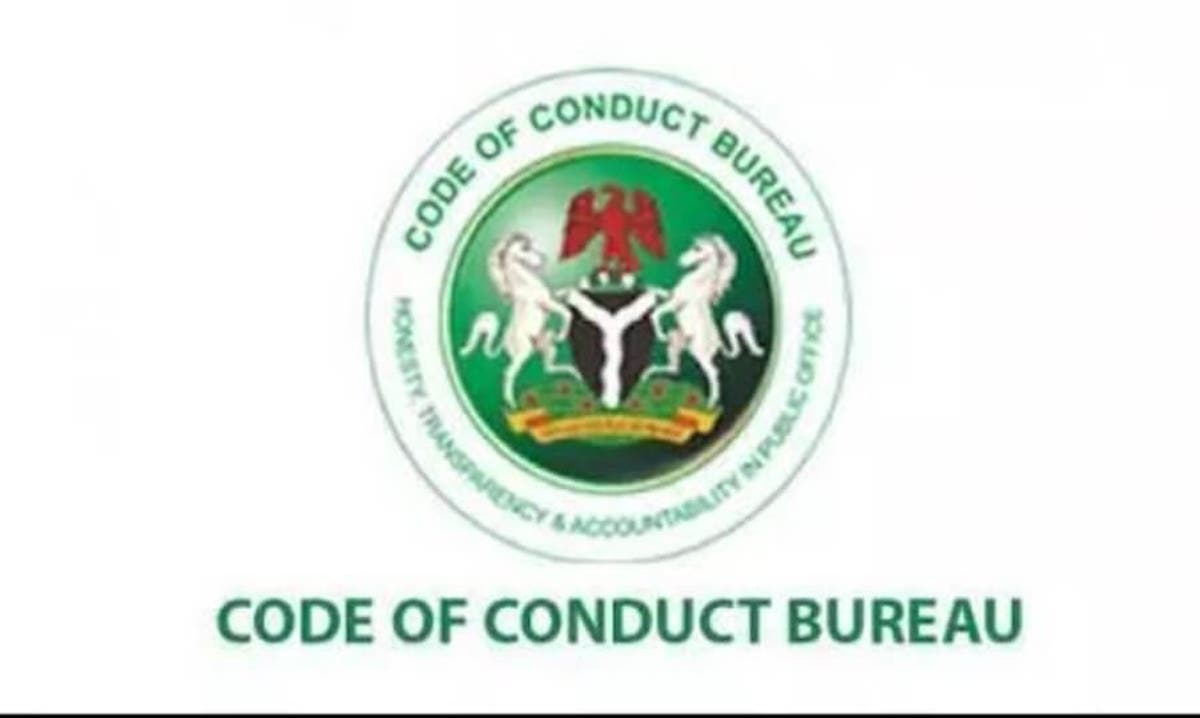The Chairman, Fiscal Responsibility Commission (FRC), Victor Muruako, has called for the establishment of Code of Conduct Tribunal (CCT) in the 36 states of the federation to fast-track dispensation of justice.
He made the call on Tuesday in Abuja at the launch of “Explanatory Manual on: The Code of Conduct For Public Officers (CCPO)” organised by the Technical Unit on Governance and Anti-Corruption (TUGAR), Code of Conduct Bureau (CCB) and Centre for Democracy and Development (CDD).
- ICPC to CCB: Publish assets declared by public, civil servants
- PODCAST: Who Should Collect VAT – Federal Or State Governments?
Muruako said having one tribunal based in the Federal Capital Territory (FCT) would do the country no good in the face of loads of cases on the table of the tribunal.
“With our geographical configuration, one CCT located in Abuja won’t be enough and effective. Looking at the number of cases they have, there a need for more tribunal in order to be more efficient, mete out appropriate sanctions as provided by law against especially serial recalcitrant, obstinate and unmanageable offenders.
“This we believe will go a long way in deterring many a public office holder who would otherwise, not think twice before violating the code,” he said.
Also, Federal Commissioner in charge of Investigation, Monitoring and Intelligence in CCB, Muritala Kankia, said the level of compliance of public office holders to assets declaration has improved in the last few years.
He urged more public servants to declare their assets as part of constitutional requirement.
He said, “When we came around 2018, there was low level of compliance to asset declaration. We initially thought that it was because people do not know and we decided to start educating people. Now, from records and reports received from all the 36 states, we have about 60 to 70 per cent compliance level. We want to achieve 100 per cent.”
The Head, TUGAR, Lillian Ekeanyanwu, said the explanatory manual was designed to simplify the contents of the Code of Conduct and enable the CCB to issue guidelines and directives to public officers on specific aspects of the Code.
She said the CCPO is “A treaty obligation under Article 8 of the United Nations Convention Against Corruption (UNCAC), which Nigeria signed unto on 9 December 2003 and ratified on 14 December 2004.”
She said the manual is aimed “On one hand, equip officials of the CCB to have a shared understanding of the elements of the code in order to aid implementation and enforcement and on the other hand, for public servants to understand the code and mainstream same into work place.”

 Join Daily Trust WhatsApp Community For Quick Access To News and Happenings Around You.
Join Daily Trust WhatsApp Community For Quick Access To News and Happenings Around You.

